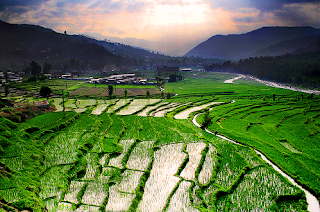Gilgit Baltistan
Gilgit Baltistan was formerly known as the Northern Areas of Pakistan, is located in northern Pakistan. Gilgit Baltistan borders Afghanistan to the north, China to the northeast, the Pakistani administrated state of Azad, Jammu and Kashmir (AJK) to the south, and the Indian-administered state of Jammu and Kashmir to the southeast. The territory of Gilgit-Baltistan consists of seven districts namely Gilgit, Ghezir, Hunza Nagar, Diamar, Astore, Baltistan (Skardu) and Ghanche.
History of Gilgit Baltistan
The isolation associated with the Karakoram mountains ensured that Gilgit-Baltistan, developed and preserved its unique history, cultural values and traditional political identity. Over the centuries, the region of Gilgit-Baltistan came under the control of the Durrani Empire of Afghanistan and experienced four centuries of Muslim rule under the Mughals (until 1751) and the Afghan Durranis, who ruled until 1820. Between 1832 and 1860, the region of Gilgit-Baltistan was conquered by the Sikhs and the Dogras who administered the region as part of the Princely State of Kashmir and Jammu under the tutelage of the British Crown. Between 1935 and 1947 the territory of Gilgit-Baltistan was given to the British on lease in order to enable them to keep watch on the developments in Xinjiang and Afghanistan.
When then English returned the Gilgit warrant, the territory of Gilgit-Baltistan became the third "Northern Area†province of Kashmir and Jammu. On 1st November 1947, the local population of Gilgit Baltistan of Gilgit-Baltistan fought the Dogra Raj and joined Pakistan and declared an independent Republic in Gilgit. This Gilgit government, along with similar governments in Muzaffarabad and Sringar, formed the three UN-recognized interim governments in the disputed former state of three provinces. However, following the Indo-Pakistani War of 1947, Pakistan occupied the territories to the north and west of the cease-fire line and divided the territory into the Northern Areas (Gilgit-Baltistan) and Azad, Jammu and Kashmir (AJK) in the south.
On 29 August 2009, the Gilgit-Baltistan Empowerment and Self-Governance Order 2009, was passed by the Pakistani cabinet and later signed by the President. It granted self-rule to the people of the former Northern Areas, now renamed "Gilgit-Baltistan," by creating, among other things, an elected legislative assembly.
In early September 2009, Pakistan signed an agreement with China of a mega energy project in Gilgit-Baltistan which includes the construction of a 7000-megawatt dam at Bunji in the Astore District of the Gilgit-Baltistan.[7] This also resulted in protest from India, however Indian concerns were immediately rejected by Pakistan, saying the Government of India has no locus standi in the matter.[8]
On September 29, Prime Minister Yusuf Raza Gilani while addressing a huge gathering at Gilgit-Baltistan announced a multi-billion rupee development package aimed at the socio-economic uplifting people in the area. Development projects will include the areas of education, health, agriculture, tourism and basic needs of life.[9] The Prime Minister further went on to say:
"You are getting your identity today. It is your right and has been your demand, and today we are fulfilling it."
History of Gilgit Baltistan
The isolation associated with the Karakoram mountains ensured that Gilgit-Baltistan, developed and preserved its unique history, cultural values and traditional political identity. Over the centuries, the region of Gilgit-Baltistan came under the control of the Durrani Empire of Afghanistan and experienced four centuries of Muslim rule under the Mughals (until 1751) and the Afghan Durranis, who ruled until 1820. Between 1832 and 1860, the region of Gilgit-Baltistan was conquered by the Sikhs and the Dogras who administered the region as part of the Princely State of Kashmir and Jammu under the tutelage of the British Crown. Between 1935 and 1947 the territory of Gilgit-Baltistan was given to the British on lease in order to enable them to keep watch on the developments in Xinjiang and Afghanistan.
When then English returned the Gilgit warrant, the territory of Gilgit-Baltistan became the third "Northern Area†province of Kashmir and Jammu. On 1st November 1947, the local population of Gilgit Baltistan of Gilgit-Baltistan fought the Dogra Raj and joined Pakistan and declared an independent Republic in Gilgit. This Gilgit government, along with similar governments in Muzaffarabad and Sringar, formed the three UN-recognized interim governments in the disputed former state of three provinces. However, following the Indo-Pakistani War of 1947, Pakistan occupied the territories to the north and west of the cease-fire line and divided the territory into the Northern Areas (Gilgit-Baltistan) and Azad, Jammu and Kashmir (AJK) in the south.
On 29 August 2009, the Gilgit-Baltistan Empowerment and Self-Governance Order 2009, was passed by the Pakistani cabinet and later signed by the President. It granted self-rule to the people of the former Northern Areas, now renamed "Gilgit-Baltistan," by creating, among other things, an elected legislative assembly.
In early September 2009, Pakistan signed an agreement with China of a mega energy project in Gilgit-Baltistan which includes the construction of a 7000-megawatt dam at Bunji in the Astore District of the Gilgit-Baltistan.[7] This also resulted in protest from India, however Indian concerns were immediately rejected by Pakistan, saying the Government of India has no locus standi in the matter.[8]
On September 29, Prime Minister Yusuf Raza Gilani while addressing a huge gathering at Gilgit-Baltistan announced a multi-billion rupee development package aimed at the socio-economic uplifting people in the area. Development projects will include the areas of education, health, agriculture, tourism and basic needs of life.[9] The Prime Minister further went on to say:
"You are getting your identity today. It is your right and has been your demand, and today we are fulfilling it."




nice places .This is gift for us
ReplyDelete